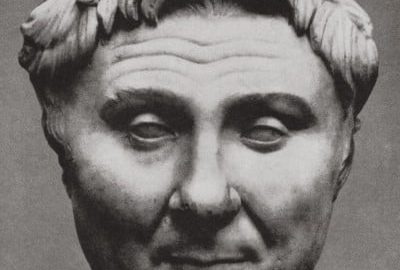Pompey the Great was famous for his courage and bravery. In 58 BCE he assumed the position of praefectus annonae, who oversaw grain deliveries to Rome. It was a unique position that the edile normally covered under its authority during the republic. However, in the event of major food crises, a special officer was appointed for 5 years.
This was the case in 58 BCE when Rome was experiencing problems with the supply of grain, and the city was shaken by social unrest. Pompey was given a lot of power only to stabilize the food problem in the capital. To this end, he sent his trusted people and friends to various parts of the Republic in search of supplies. He himself travelled to Sicily, Sardinia and Africa to gather grain.
Plutarch tells the story that when the grain ships were getting ready to go to Rome, the weather suddenly broke down and a strong storm broke out. The terrified ship’s crew was afraid to go to sea. Then Pompey the Great jumped on board and ordered to raise the anchor, saying: “To sail is necessary; to live is not”. This sentence can be understood as: I must leave, even if I risk my life.
Pompey’s actions were so successful that the markets in Rome were filled with food to such an extent that even foreigners could count on some grain. Pompey’s actions emphasized his role and strength in the Roman state.







